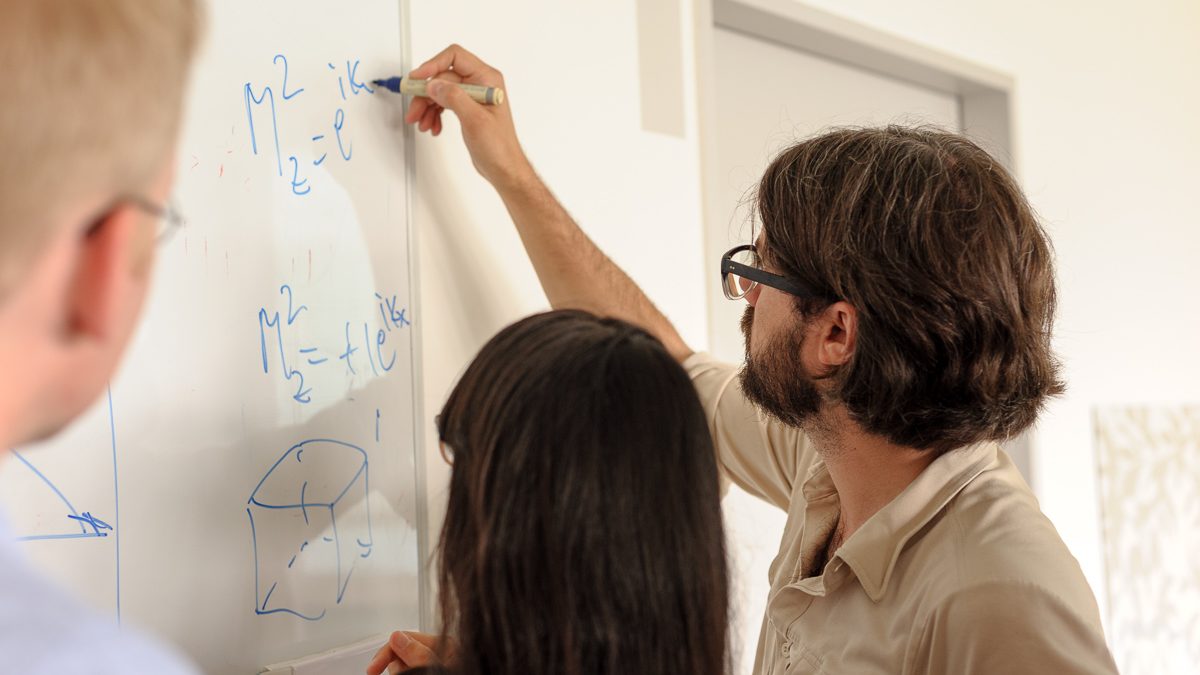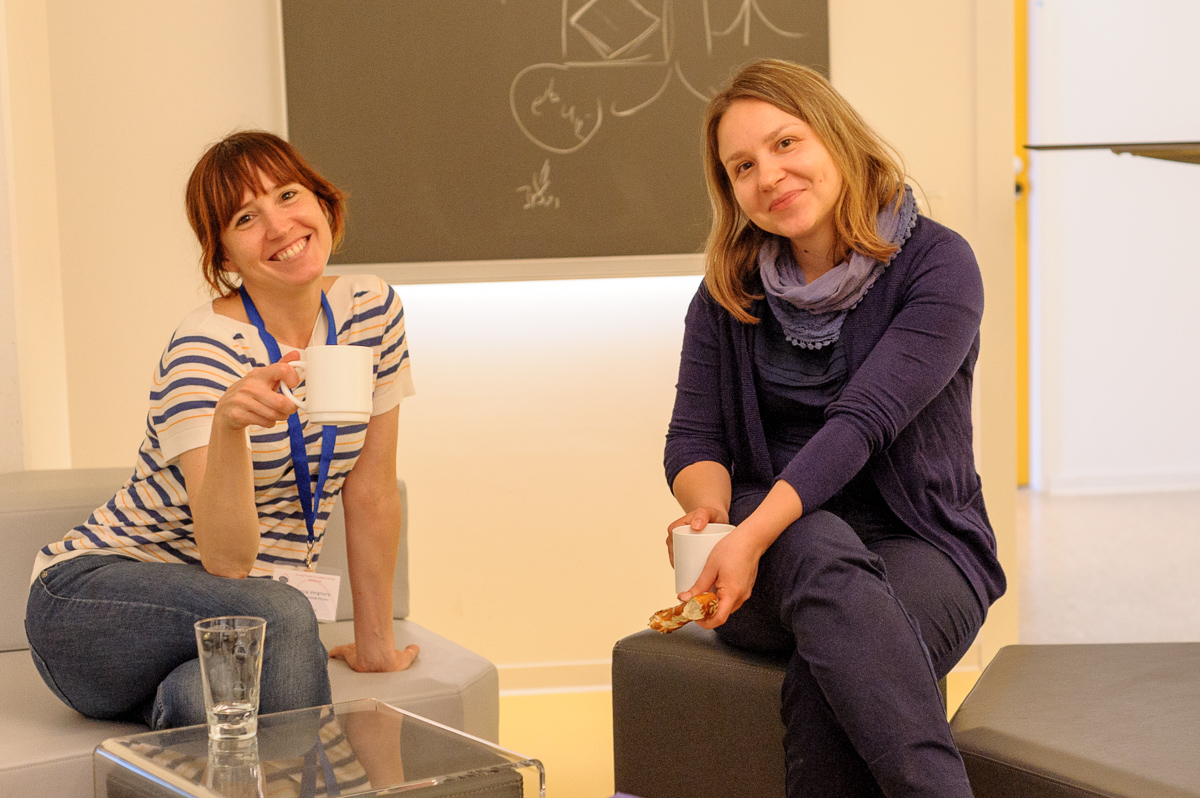Young Research Leaders Group Workshop: New Paradigms in Dirac-Weyl Nanoelectronics
June 13th-17th 2016
This Young Research Leaders workshop in Topological Matter has been continued as a series in 2017 organized by Binghai Yan and Leslie Schoop (sponsorded by the MPI for Chemical Physics of Solids) and in 2018 organized by Binghai Yan, Raqueiroz, and Philip Moll (sponsored by the Weizmann Institute of Science, the MPI-CPfS, and SPICE).
With the impending end of traditional Si based electronics due to Moore's law limitations, the need for novel approaches to next generation device design is not only apparent, but has become a popular interdisciplinary research topic. From research in fabrication engineering and device architectural design to devices based on intrinsically different physics, there is ample room for research from physics, chemistry, and engineering perspectives.
Recent discoveries in condensed matter physics involving massless Dirac fermions and Weyl fermions have added another avenue of research into future electronics. The realization of fundamental particle physics, normally thought reserved to high energy regimes, in relatively simple materials has caused an explosion of research and allowed for important contributions from theoretical and experimental physicists, materials scientists, solid state chemists, and others. However, to date, no Dirac/Weyl physics based electronic device or technological application has been realized nor have any devices been based on fundamental particle changes (i.e. changing between Dirac and Weyl Fermions) been created. Many challenges exist in bringing Dirac/Weyl physics to technological reality and only through a focused interdisciplinary effort will this new exotic physics be able to make an impact on society.
This SPICE Young Research Leaders Workshop approached the problem from a primarily materials perspective aiming to use external stimuli such as classical gating, ionic liquid gating, optical excitation, magnetic field control, strain, etc. to cause large physical property changes in Dirac and Weyl materials due to their unique, sensitive and modifyable Fermi surfaces. Young experts in theoretical and experimental physics, solid state chemistry, and electrical engineering were brought together in a multi-disciplinary collaborative effort to quickly bring the exciting new physics of Dirac and Weyl materials to practical application. Through the foundations laid in this workshop, we hope to spark a new field of electronics, discover new materials, new properties, new physics, and possibly create devices based on changing between fundamental states of matter.
Scientific Organizers:
Mazhar Ali
Binghai Yan
Spice Co-Organizer:
Jairo Sinova
Invited Speakers:
| Mazhar Ali (MPI-Halle) Christian Ast (MPI-Stuttgart) Haim Beidenkopf (Weizmann) Andre Bernevig (Princeton) Christoph Brüne (Würzburg) K.C. Fong (Harvard/BBN) Josh Goldberger (Ohio State) |
Zhongkai Liu (Shanghai Tech) Tyrel McQueen (Johns Hopkins) Lukas Muechler (Princeton) Yuriy V. Pershin (South Carolina) Timothy Phung (IBM-Almaden) Raquel Quieroz (MPI Stuttgart) Libor Šmejkal (Mainz) Andreas Schnyder (MPI-Stuttgart) |
Leslie Schoop (MPI-Stuttgart) Benjamin Stadtmüller (Kaiserslautern) Peizhe Tang (Stanford) Binghai Yan (MPI Dresden) Hyunsoo Yang (National Univ. of Singapore) |







